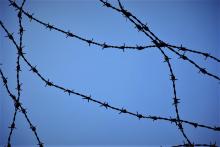FasoBiogaz
FasoBiogaz SARL is an enterprise located in the industrial zone of Kossodo in Ouagadougou, Burkina Faso, and operates the first industrial biogas plant connected to the SONABEL power grid. With an installed electrical capacity of 275 kW, the plant is transforming slaughterhouse waste and other available organic substrate into biogas and digestat. While biogas is transformed into electricity and injected into the national power grid, the digestat is commercialized as biofertilizer. The project is financed by the Dutch private investor company Van Kersbergen Invest B.V.
